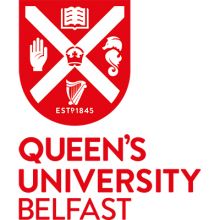Engineering and Physical Sciences Research Council
Research grants
- Award winner: Angela Busse
- Institution: University of Glasgow
- Value: £100,764
Fluid dynamic properties of irregular, multi-scale rough surfaces
- Award winner: Petra Nordqvist
- Institution: University of Manchester
- Value: £374,587
Curious connections: the impact of donating egg and sperm on donors’ everyday life and relationships
- Award winner: Steven Gao
- Institution: University of Kent
- Value: £361,127
Lead niobate-based tunable dielectrics for smart microwave and millimetre-wave systems
- Award winner: Joseph Betouras
- Institution: Loughborough University
- Value: £349,710
Controlling unconventional properties of correlated materials by Fermi surface topological transitions and deformations
- Award winner: Saul Jacka
- Institution: University of Warwick
- Value: £316,491
Coupling and control in continuous time
National Institute for Health Research
Efficacy and Mechanism Evaluation programme
- Award winner: David Jayne
- Institution: University of Leeds
- Value: £1,885,924
Intact: intraoperative fluorescence angiography to prevent colorectal anastomotic leak
- Award winner: Philippa Garety
- Institution: King’s College London
- Value: £1,300,255
A randomised controlled trial to evaluate the outcomes and mechanisms of a novel digital reasoning intervention for persecutory delusions
Economic and Social Research Council
Research grants
- Award winner: Ainhoa Montoya
- Institution: University of London
- Value: £132,841
The legal cultures of the subsoil: the judicialisation of environmental politics in Central America
- Award winner: Kärg Kama
- Institution: University of Oxford
- Value: £149,196
Geo-logics and geo-politics: the collective governance of European shale gas development
- Award winner: Jorge Vinuales
- Institution: University of Cambridge
- Value: £578,903
BRIDGE – building resilience in a dynamic global economy: complexity across scales in the food-water-energy nexus
In detail
Award winner: Alan Fernihough
Institution: Queen’s-University Belfast
Value: £149,674
The causes and consequences of the Great Irish Famine
Was early 19th-century Ireland overpopulated and fertility at an unsustainable level, or did other factors cause the Great Irish Famine? Did the famine-induced migration to Britain spread infectious diseases and have a substantial impact on British mortality rates? Similarly, what impact did the famine have on the British labour force and economy generally? This study will attempt to answer these questions. The team will use newly available census data to uncover how the Irish famine influenced the British economy and labour force. Did the influx of Irish in certain cities such as Liverpool and Manchester boost demand and help to speed up economic growth, or did this migration depress the wages of locals and therefore stifle economic advancement? Additionally, the study will use newly available records of regional mortality to calculate what impact, if any, the Great Famine had on mortality in England and Wales.
Register to continue
Why register?
- Registration is free and only takes a moment
- Once registered, you can read 3 articles a month
- Sign up for our newsletter
Subscribe
Or subscribe for unlimited access to:
- Unlimited access to news, views, insights & reviews
- Digital editions
- Digital access to THE’s university and college rankings analysis
Already registered or a current subscriber? Login


